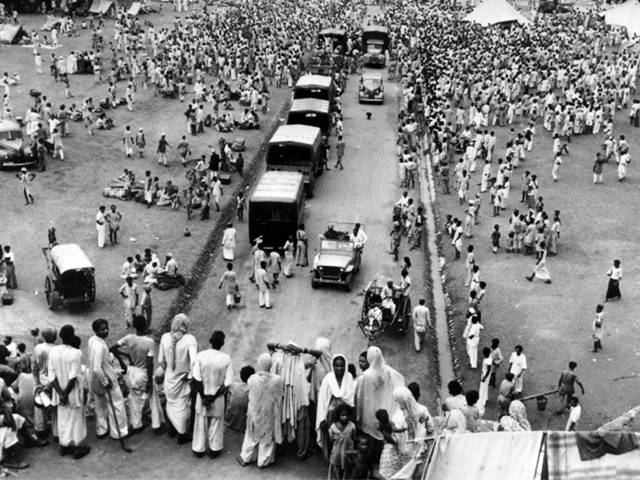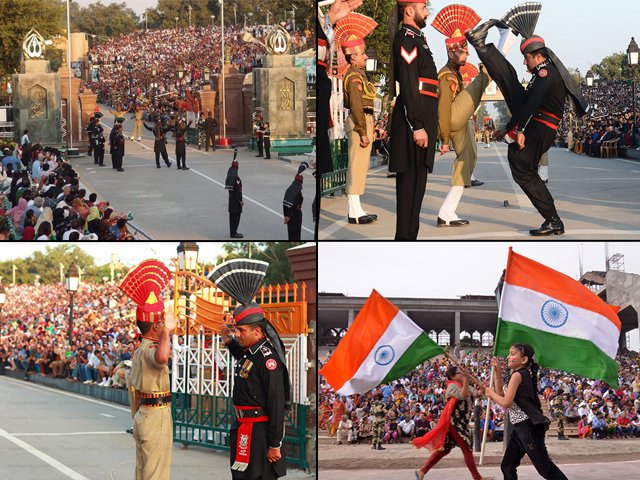
The memory of partition must become invalid now
The memory of partition needs to become invalid as it will only bring pain. Let's not live in the past and move on.
During our Aman Chaupal initiative, where we invite a representative from Pakistan to interact with students in India, this time I got the opportunity to meet Mr Aamir Nawaz.
Nawaz is the president and artistic director of the MAAS Foundation, a leading theatre group of Pakistan which showcases plays on several social themes. One of their prominent themes is Indo-Pak issues.
As a part of the Aman Chaupal, we showed the video of one of MAAS’s plays to students of the South Asian University (SAU), which was followed by a discussion on the theme of the play. The play, named Permasher Singh, was based on the partition. Whether our grandparents had migrated or not, partition or the ‘memory’ of partition has been inculcated in all of us through history books and culture. However, it is sad that the ‘memory’ has only been used to sow hatred. Both the play and the discussion challenged the popular narrative of partition. It compelled us to think how we should perceive it today and what we need to do with the memory of partition.
The play portrayed the complexities, contradictions and the clash of communities and people’s conscience at the time of partition. It explored the different factors that led to people committing atrocities against the people of other communities – the idea of avenging the merciless killing and rape of one’s own kin and the suspicions that people across the border are mercilessly killing people of their community.
There was a wave of hatred and insanity and it was virtually impossible not to get swept by that flow. Anyone who tried to act in favour of humanity was considered insane. But despite this, there was a man named Permasher Singh, who rose above it all and saved the life of a Muslim boy named Akhtar. This boy reminded him of his own son named Kartar who was probably killed in the riots. Singh believed that all kids are the same and that they are all children of the same god. But as expected, the people of his community and his own kin had problems with his new affection for the boy. It was even suggested to him to convert the boy to Sikhism but he refused to do so. They developed a beautiful bond, similar to father and son, but then Singh decided to send him to Pakistan to his family. He took Akhtar to the border but when the Pakistani soldiers saw him, they shot him. The question posed at the end was:
“Whose child was Akhtar, India or Pakistan?”
And the play ended with,
“He was the child of humanity.”
The play was an attempt to challenge the official narrative on partition that exists on both sides. Partition was much more than just a political decision. It also challenged the beliefs, which people on both sides still hold on to. It did not only divide the land, it disrupted peace and social solidarities; it destroyed peoples’ conscience.
The play was meant to replace the hatred with this realisation of mutual insanity and inhumanity.
Owing to its nature, SAU, with its students from all South Asian Association Cooperation (SAARC) countries, brought perspectives from not only India but from Pakistan and Bangladesh as well to the discussion. It was argued by many that the partition is still a collective memory and that while it may not always be used to inculcate hatred, it is high time we forget it and move on.
A student from Pakistan said that we need to forget the past, accept that we are different and learn to respect each other. Professor Tripathi of International Relations, argued that,
“A country is made of history, geography, politics and economy. We cannot change the history and geography but we can change the politics and economy. We need to take a decision whether we want an economy of prosperity or an economy of poverty. Till now, we only have an economy of poverty.”
We need to move on.
We cannot undo the past so let’s not live in it. There is no point in remembering those memories which only inflict pain. We need to live in the present and ensure that the madness is never repeated.
We need to live and work for our present and for this, as Nawaz rightly remarked,
“The memory of partition needs to become invalid now.”
Both India and Pakistan need to focus on our present, wherein things are far from perfect, and for this the vision for development and equality is required, not bygone memories.



COMMENTS (57)
Comments are moderated and generally will be posted if they are on-topic and not abusive.
For more information, please see our Comments FAQ